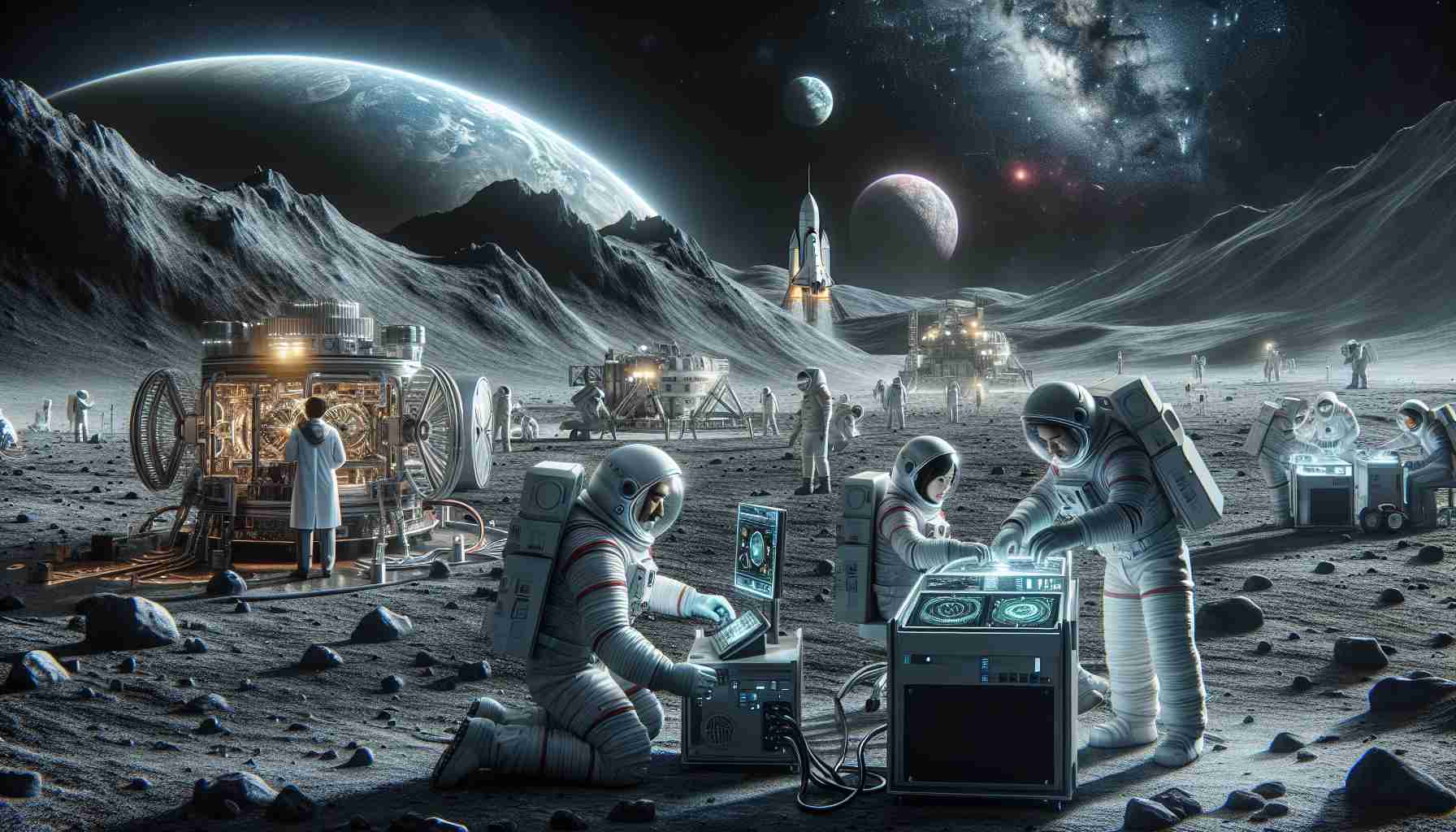In the hallways of Polytechnique Montréal, the sight of robots with living joints climbing stairs barely catches the attention of students accustomed to surrounding themselves with futuristic technology.
“I can actually tell it where I want it to go,” explains Professor of Engineering Giovanni Beltrame, demonstrating other robots he uses in his newly created research unit.
The unit, named Astrolith, is developing a type of artificial intelligence that could contribute to future lunar exploration.
Astrolith creates computers and software that can be customized for various exploration devices, such as drones and robots.
“We bring together many professors, a total of 18, with different specializations to develop lunar engineering in the context of a permanent settlement on the Moon and beyond,” Beltrame said.
The last time Americans took a rover to the Moon was in 1972.
But the race for lunar exploration is picking up pace once again. Several countries, including Japan earlier this month, have landed lunar modules.
Americans and Canadians will also participate in crewed explorations within the next two years as part of the Artemis mission.
However, this time the scientific community has much more ambitious goals, and that’s where the team at Polytechnique comes into play.
“In the future, I would even say in the near future, mining will be inevitable because it is crucial to build settlements on the Moon, so you need to extract your own resources there,” Beltrame said.
The engineering developed by Astrolith could even change the way we exploit our own planet: “It is possible that space mining may be more beneficial than mining on Earth due to the environmental impact of terrestrial mining.”
The developing sensors are so advanced that cameras mounted on robots can map the environment in 3D and react accordingly.
Beltrame is surrounded by eager master’s and doctoral students who are rediscovering lunar ambitions that fueled NASA in the 1960s.
“To be honest, it would be my dream to live on the Moon, but it’s still too early for that. But we are working on it,” said Astrolith member Guillaume Ricard.
It is a new era for the team, which aims to leave its own footprint on the surface of the Moon.
FAQ Section:
1. What is Astrolith?
Astrolith is a research unit developing artificial intelligence technology for lunar exploration.
2. What devices can be adapted to Astrolith software?
Astrolith creates software that can be customized for various exploration devices, such as drones and robots.
3. What are the goals of the Polytechnique team?
The team’s goal is to develop lunar engineering in the context of a permanent settlement on the Moon and beyond.
4. Which countries are participating in the race for lunar exploration?
Several countries, including Japan, have landed lunar modules. Americans and Canadians are also planning crewed explorations in the next two years.
5. What potential changes could the Astrolith engineering bring?
Developing space engineering could change the way we exploit our own planet by utilizing space resources.
6. How advanced are the sensors developed by Astrolith?
The sensors developed by Astrolith have advanced technology that allows for mapping the environment in 3D and reacting accordingly.
7. What are the ambitions of the Astrolith team?
The members of the Astrolith team have the ambition to leave their own footprint on the surface of the Moon.
Definitions:
1. Artificial Intelligence – a field of computer science that deals with creating computer systems capable of performing tasks that require human intelligence.
2. Exploration – the process of investigating and discovering new areas or phenomena.
3. Lunar module – a spacecraft designed for landing on the Moon.
4. Space engineering – a branch of engineering that focuses on the design and construction of devices and technologies related to space exploration.
Related Links:
NASA: The official website of NASA – the space agency responsible for research and exploration programs.
JAXA: The official website of the Japan Aerospace Exploration Agency – the organization responsible for conducting space research and exploration programs.
[Embedded Video](https://www.youtube.com/embed/HIiMZsPKPd8)
The source of the article is from the blog karacasanime.com.ve








